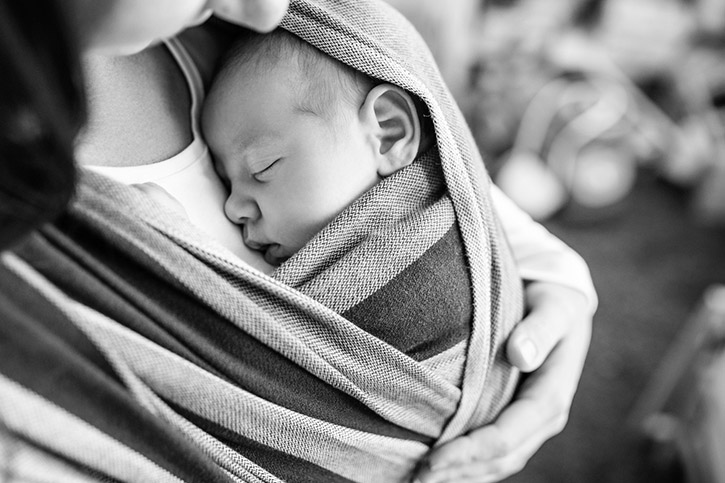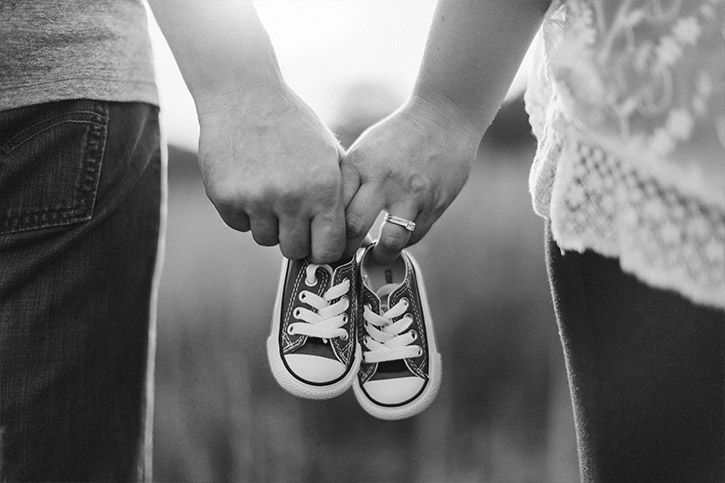Issues with fertility – that is, the ability to get pregnant – are quite common, affecting roughly 1 in 6 women in Australia. There are dozens of reasons why you might be having trouble, from your age to an infection. In some cases, there is no underlying medical condition – it simply may not have happened for you yet.
Not being able to get pregnant can be very frustrating. While there may be an underlying cause, it may have simply not happened for you yet. Here are 8 ways to naturally boost fertility.
Not being able to conceive a child can be very frustrating, however, there are some things you can do to boost fertility. These include assessing your lifestyle, health, and being smart about when you try to conceive. All can be very effective. If you are having trouble getting pregnant, it’s a good idea to talk to your obstetrician too!
Let’s take a look at some ways to naturally boost fertility.
Track Your Menstrual Cycle
As you know, your menstrual cycle dictates the time of the month that you are most likely to conceive. You are most fertile the day of ovulation (usually 12 to 16 days before your period begins) and the five days preceding it – so somewhere between day 10 and 17 of your menstrual cycle. However, every woman experiences their cycles differently, so trying to conceive during this window may not work for you.
It may be a good idea to keep an ovulation calendar to track your menstrual cycle over a few months. Your cycle starts on the first day of your period, and begins again on the first day of your next. Once you determine how long your cycle is (usually 21 to 35 days) you can deduce when you are most fertile by subtracting 14 from this number.
For example if your cycle is 29 days, you are most fertile on the 15th day of your cycle. If you have sex for the five days preceding and on your day of ovulation, you maximize your chances of conceiving
Watch Your Weight
Obesity and being underweight can both affect fertility in a number of ways, including causing hormone imbalances and issues with ovulation. So if you are having trouble getting pregnant, it’s a good idea to check your body mass index (BMI) to assess your ideal weight.
Your BMI is your weight (in kg) divided by the square of your height (in metres). There are plenty of BMI calculators online, such as this one from The Heart Foundation. A BMI of between 18.5 and 24.9 is the healthy range. If you are outside of this window, it is a good idea to consider a nutritional diet and exercise regime, and to discuss your options with your healthcare provider.
Eat Well
On the topic of diet, it is very important to eat well no matter what you weigh if you’re trying to get pregnant (or even if you’re not). A healthy, balanced diet will help ensure your menstrual cycle is regular, and will help curb any weight issues.
Protein, iron, zinc, vitamin C, and vitamin D deficiencies have all been linked with menstrual cycle irregularities. Consuming plant proteins over animal proteins can also significantly reduce the risk of ovulatory infertility.
One study by Harvard University also found that “the more low-fat dairy products in a woman’s diet, the more trouble she had getting pregnant” and that “the more full-fat dairy products she ate, the less likely she was to have trouble.”
Cut Out Bad Habits
If you’re trying to get pregnant, see it as an excellent chance to kick all of your vices. Alcohol, caffeine and cigarettes are all no-go’s while you are pregnant. But they can also affect fertility, so giving them up while you’re trying is an excellent idea.
Multiple studies have suggested that alcohol can reduce fertility in women (and men – this is something you might want to do with your partner). Smoking is toxic to the reproductive system and can cause problems with fertility too, and issues with pregnancy down the track. It also lowers sperm count, so it is important that your partner stops too.
Some studies have also found a link between caffeine consumption and fertility. While research is still ongoing, if you are looking to try every natural way to boost fertility, cutting down or cutting it out completely is a good idea. If you really need coffee, limit yourself to 200 milligrams a day.
Drink Plenty of Fluids
Your cervical fluid (also called cervical mucus) is a very important part of fertility – it helps sperm travel up the cervix and reach the egg. Around the time of ovulation the fluid becomes thin, but if you are dehydrated, it can become thick and sludgy, reducing the chance of the sperm making its way to the egg. Drink plenty of fluids!
Watch How You Exercise
Exercising is a good way to manage your weight, and for your overall health you should be getting roughly 30 minutes of moderate exercise a day. However, over-exercising or doing particularly vigorous or strenuous exercise can affect your menstrual cycle. If you’re struggling to get pregnant, consider changing your exercise routine to something less intense.
Consider How You Lubricate
If you use lubricant during intercourse, you might want to consider how it affects your fertility. Some varieties can make it harder for sperm to reach the egg, so be sure to stick with “sperm-friendly” options or natural lubricants.
Have Plenty of Sex
The best way to naturally boost your chances of getting pregnant is to have plenty of sex! Having sex two to three times a week all but guarantees that you will do it when you are fertile, even if you don’t know when that is.
If you do know when your fertile window is, have sex every day if possible. Some studies have also suggested that women who have regular intercourse are more likely to have stable menstrual cycles and normal ovulation.
If you have any questions regarding fertility, please don’t hesitate to get in touch. Dr Brown is one of the most trusted obstetricians in Sydney. We will strive to give you guidance and compassionate care in every way possible.
If you’d like to read more about possible reasons for infertility, see here.

